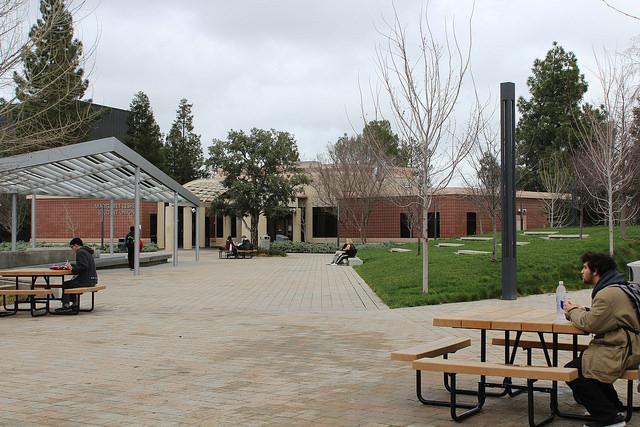Student engagement breeds success
Students sit isolated from each other in the Commons.
February 4, 2017
Once again a new semester is upon us. Whether it’s your first semester at Diablo Valley College, or your fifth, the onslaught of new classes brings with it many new faces.
DVC is often described as a “commuter college,” in that there isn’t the same social aspects and camaraderie as say Chico, or UC San Diego.
There are no fraternities and sorority houses throwing ragers every weekend bringing together classmates in a drunken cesspool of debauchery leading to life-long friendships.
The ages of your classmates may vary greatly from 18 year olds fresh out of high school to middle-aged men and women eager to continue their education. Some may live locally while others commute for over an hour.
You most likely only see them for an hour and 20 minutes twice a week, sitting silently next to them, remaining perfect strangers for 18-weeks.
Joining a club, being part of student office, or intramural sports can help with making meaningful and worthwhile connections, but according to a 2006 study by the National Postsecondary Education Cooperative (NPCE), “84 percent of students in 2-year colleges spend no time on these activities.”
The NPCE also concluded that schools where more students regarded their classmates as close friends and participated in more “college-sponsored activities,” had a higher percentage of student’s obtaining degrees.
So how do we get more students involved?
The campus has already made attempts at engaging college freshman with programs like First Year Experience, which includes a welcome day and student success workshops where they can get information on student life and services.
Perhaps one of the seminars can be tailored to include information on the science backed benefits and importance of being involved in the campus community and how integral it is to their overall college success.
There are also certain classes that emphasize working in groups as opposed to sitting in a giant lecture hall barely interacting with fellow students.
STATWAY is a great example of this as students primarily work together to solve statistical problems and can rely on one another, not only to learn the material, but get missed assignments and encouragement. The NPCE has also found that peer teaching had a “positive impact on learning and personal development.”
While it may not be the traditional way of teaching, perhaps if more instructors, faculty and students requested this style of education, students would take away more than just an associate’s degree, but an appreciation for the people they worked with to achieve it.
~ Spring 2017 Editorial Board






































































